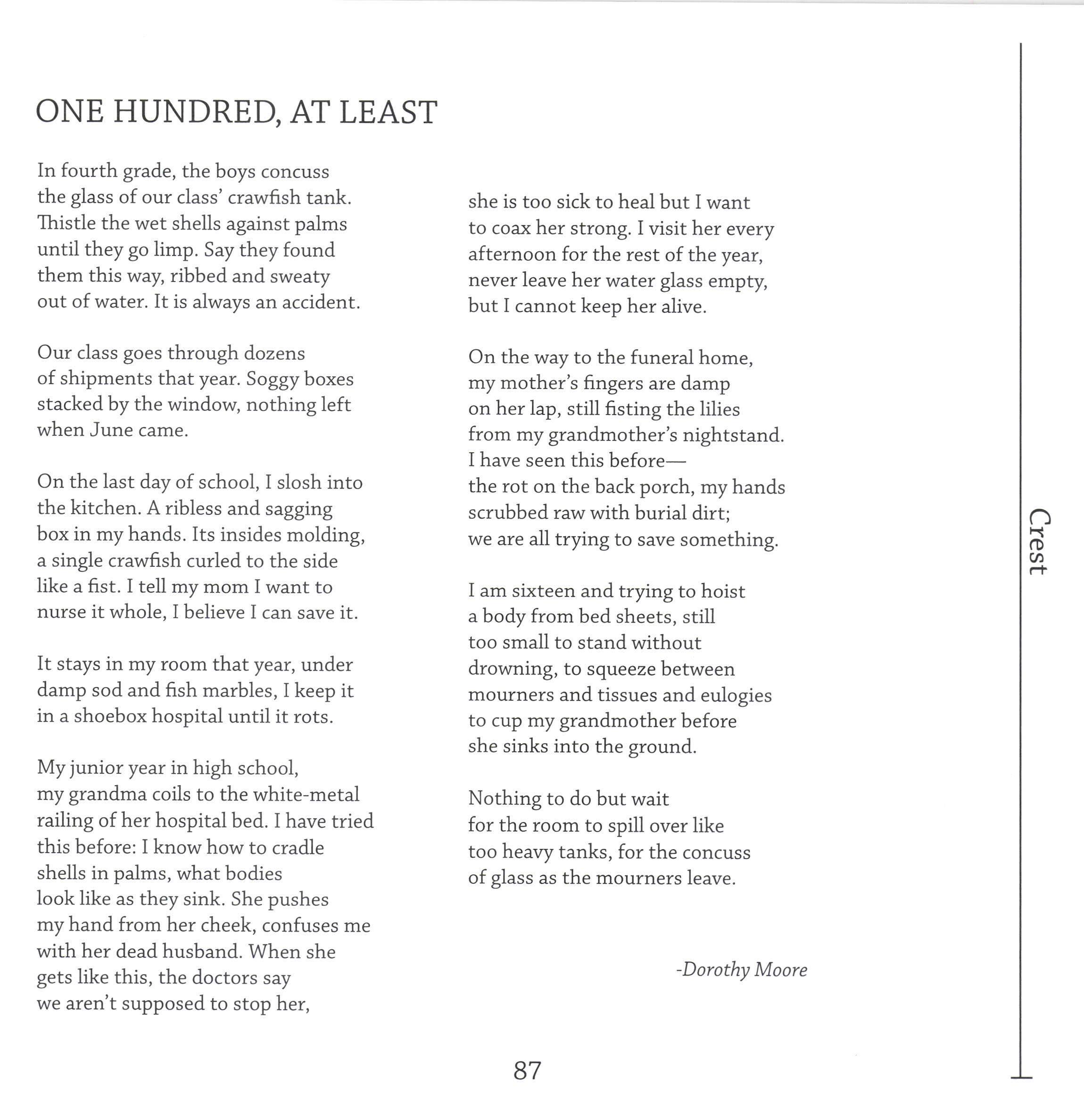
3 minute read
Rrap Kryeziu; RenataVoci
from Crest 2012
KOSOVVAR
I was born in 1992 in Prishtina, Kosovo, one of the geographic flashpoints of the Yugoslav Wars during the 1990s. As a child, I was not aware of why the war was happening, but I dreaded the atmosphere. I remember the war sirens frequently interrupting outdoor games and having to run inside quickly. Inside, the adults huddled around the television for news. None of the children dared to talk, for fear of being scolded by our adult relatives. Everyone was stressed. Preschool was cancelled, and I didn't see my classmates anymore. Soon friends from the neighborhood began to vanish without warning or explanation, and soon thereafter, we too abandoned our home. I began to understand cause and effect. The sirens had caused all of this. My tightly-packed family hid in our neighbor's basement - with no electricity and a loud silence. I did not know why we were hiding. I do now. We were hiding because Serbian paramilitary troops were hunting for my grandfather, who had formerly been a political prisoner because he had written a historical dramatic play about Albanian independence. He was being hunted not to be captured, but to be killed. In any case, I knew then that, for whatever reason, I had to be totally still and quiet. Something was very wrong and my family was very scared. I couldn't sleep because of the continuous gunfire. Three or four days after we started hiding, NATO began its air bombing. The day after the aerial bombing began, Serbian soldiers came into the house in which we were hiding and told the owners that they had five minutes to evacuate the house and leave for good. It was time for us to flee as well. Serbian paramilitary troops were all over the street. Their faces were covered with masks. Some of the masks were made of black cotton; others were made of silver steel. I still remember the eyes beneath their masks. The eyes were scarlet colored, filled with either rage or drugs. I saw hundreds of neighbors in the street, and the masked soldiers were pulling young men from the long line of families. Slaughterhouse. Even as child of only six, I somehow knew that these neighbors were being chosen to be killed. Step after step, afraid to lift my eyes from the cracks of Prishtina's roads, we were led by the soldiers to the crowded train station. I remember that all of the adults were smoking, that a woman had accidentally dropped her baby and that people were yelling to find their relatives. The station was very crowded and the train doors were blocked with people. My family climbed through a small window to get into the train. My great-grandmother had so much trouble climbing into the train because the window was too small and she was too large. At the time, the scene of my great-grandmother being squeezed through a small window was horrifying. Now, I chuckle at the memory, but, of course, it is still horrifying. We got on the train without the slightest idea of where we were going. When I was a child, train rides were always an adventure, but not that time. Our cabin, meant to carry only eight people, was loaded with thirty people. We little ones had to sit on the luggage racks, high above the seats. During the train ride, I was introduced to World War II Nazi history, by overhearing the adults' anxious conversations. When the train
Advertisement
slowed down as it passed various train stations, Serb soldiers taunted us with their butterfly knives thrust through the windows. My mother often covered my eyes during the ride, but she forgot to cover my nose. People say that when one sense is taken away, the others become stronger. I will never forget the smell of that day. It was the smell of burning human flesh. Kosovo was on fire. The ethnic cleansing had begun.
-Rrap Kryeziu

-RenataVoci










